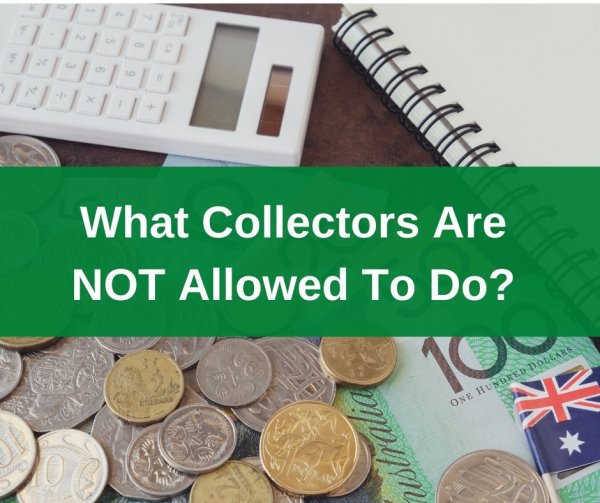Debt collectors also have some limitations as to what they can and cannot do. Throughout the years, debt collectors have garnered somewhat of an intimidating and harassing reputation.

All of us come into debt at least once at some point in our lives. For those major purchases that are just necessary for our lives, we have to get into debt and spend a few years paying them off. On the other hand, for the lenders to ensure that they get paid, they have to send debt collectors to come to talk to us and keep us on our toes.
However, just because you are a debtor, it does not mean that you are without your rights as a consumer. Debt collectors also have some limitations as to what they can and cannot do. Throughout the years, debt collectors have garnered somewhat of an intimidating and harassing reputation.
Being harassed by a debt collector is something that you are protected against. Take a look at our list below to see other things that debt collectors are not allowed to do. If you are in debt and you believe that a collector is doing any of these things, report the actions immediately to the police or the Australian Competition & Consumer Commission.
Call you repeatedly
Debt collectors are allowed to call you or write letters to you only a maximum of three times a week and ten times a month. They cannot keep calling you relentlessly to pressure you to pay up; otherwise, they would be committing debt collector harassment.
If your debt collectors are doing this, you can file a consumer complaint against them.
Call or visit you outside allowed regulation hours in Australia
Debt collectors are only allowed to call you within working hours. On weekdays, those are 7:30 am – 9:00 pm, and on weekends, those are 9:00 am – 9:00 pm. Outside those hours, they are not allowed to call you regarding your debts.
They are also allowed to visit you face to face, but the visitation hours also have limitations. Specifically, they may only visit you from 9:00 am – 9:00 pm on weekdays and weekends. On national or public holidays in Australia, they are totally prohibited from contacting you at all.
A debt collector may contact you at your workplace only within your normal working hours if they are aware of it. Otherwise, they may only do so from 9:00 am to 5:00 pm on weekdays.
Exploit your disabilities or vulnerabilities
When debt collectors exploit or in any way take advantage of your vulnerabilities for their own means or to facilitate debt collection, that is a serious offense considered unconscionable conduct under the Consumer Law.
Contact the Australian Competition & Consumer Commission right away once you believe that a debt collector is taking advantage of your disabilities. Additionally, let a trusted friend or family member know of your situation so you can secure yourself as soon as possible.
Use physical force
Debt collectors must always maintain candor and professionalism in their conduct. That means no matter what the situation may be as they perceive it, they can never physically touch you or make any strong coercion in order to get you to pay up.
This limitation does not apply only to you but also to your spouse, partner, or family member. If a debt collector is being abusive towards you, report them at once to the ACCC.
Divulge the Details of your Debt Without Your Permission
Any details about your debt are strictly confidential and may be discussed by the debt collector with other people only with your permission.
What some debt collectors do is call your employer under the guise of verifying your employment and contact information. However, if they reveal anything about your debts in the course of their conversation with your employer, that is a violation of your rights as a consumer, and you should file a complaint with the ACCC.
Deceive you about who they are or what their business is
Debt collectors are required to be upfront when it comes to their intentions of contacting you. They cannot pretend to be something or someone they are not in order to extract information out of you that they would otherwise be able to use in order to pressure you into paying.
They cannot say that they are police officers or court officers in order to scare you into paying up immediately. If you believe that a debt collector has contacted you about your debt while pretending to be a person in authority, you should take their name and other information and then make a report to your creditor or the police, or the ACCC.
Make threats or use foul language
Debt collectors cannot use strong compulsion or even threaten you into paying up. The line is not drawn at overt physical force; even the threat of using physical force or any other force that creates fear in your mind is prohibited conduct.
Like physical force, this prohibition applies not only to you but to people you are connected with, such as your spouse, your partner, or your other family members. If you have reason to believe that a debt collector is being threatening or abusive towards you or people you are connected to, you are entitled to file a complaint against them with the ACCC.
Conclusion
Be aware of your rights and report any unscrupulous conduct to the relevant authorities.
Being a debtor does not mean that you are absolutely subject to the whims of your creditor and their debt collectors. It is important to know that you still have your rights as a consumer and as a debtor and that debt collectors have lines that they are not allowed to cross.

